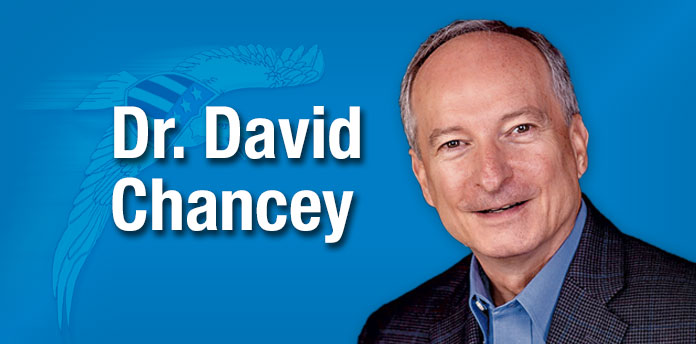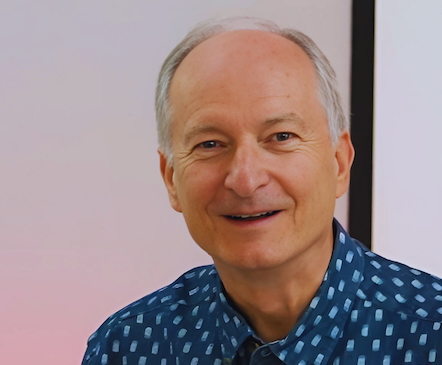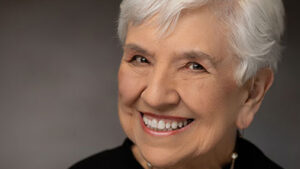Snoopy, the Peanuts cartoon’s favorite beagle, was agonizing over losing his doghouse to the new freeway coming through. In one panel, Lucy unloads, “All right, so they run a freeway through here and you lose your doghouse. You think you’re the first one who’s ever lost his home? You think you’re the only one? Huh? Stop feeling sorry for yourself!”
As Lucy walks away, a dejected Snoopy lay flat on the ground, thinking, “Whatever happened to good old-fashioned ‘arm-around-the-shoulder’ sympathy?”
That’s all Snoopy wanted, a little understanding expressed in a well-timed hug. There’s power in a hug, and lots of people may need this warm, affirming embrace as they live life in this cold, harsh world.
Mother Theresa said, “There is more hunger for love and appreciation in this world than for bread.”
We have National Days for everything in this country, from National Oreo Day to National Say Something Nice Day to National Bubba Day. I’m usually oblivious to most of them.
That’s why I overlooked January 21’s National Hug Day, the brain-child of Pastor Kevin Zaborney, who introduced this observance in 1986 in Caro, Michigan.
I think people need hugs every day, not just in January.
Granted, not everyone is a hugger, and the coronavirus pandemic certainly put the brakes on close contact temporarily. Yet, various research points to the benefits of this tangible expression of care.
For instance, the Blue Cross–Blue Shield of Illinois website suggests, “Hugging for just 10 seconds can increase the feel-good hormones like oxytocin, which causes stress chemicals like cortisol to drop and help lower your blood pressure.”
The site’s article states hugs are calming. “Because hugging can raise your level of oxytocin, a good hug can leave you feeling calmer and less anxious.”
A good hug may reduce stress, but also releases serotonin and dopamine that help lift our mood. In other words, hugs make us happy. And other studies show hugs help our heart. Google “The Benefits of Hugs” and you’ll find articles documenting various experiments and studies.
Psychology Today, for example, shared about one hugging study in which nearly 200 people were given the task of public speaking, one of the greatest struggles many people face. Before they presented, half the group had a 20-second hug from their partner while the other half stood by. Both men and women in the hugging group showed less stress levels. They concluded that hugging actually decreased stress.
Several years ago in the Little League World Series, the Warner Robins, Georgia, team battled the Japan team in the championship game. With a 2-2 tie in the bottom of the eighth, shortstop Dalton Carriker led off against Junsho Kiuchi. Dalton hammered an outside pitch over the right field wall for the winning homerun that clinched that World Series.
Naturally, the Georgia team went wild, while the Japanese team hung their heads in disappointment. Some players began to sob. Taylor Lay of Warner Robins said, “I don’t believe we’ll ever forget this moment. The sadness on their faces and the joy on ours. But we’re trying to let them know there’s no shame in what happened today.”
Rarely do we see compassion override competitiveness between the white lines, but several Georgia players noticed the devasted Japanese youth, and, unprompted, walked over to comfort their international peers. The celebration stopped and the entire team walked over to the downtrodden team … and hugged each player.
It was a moving moment, a well-timed show of class and encouragement.
Several years ago, I stood at the bedside of a man who was an invalid, basically out of it. His faithful wife stood there as I visited with her and somewhere in our conversation, she said, “I sure do miss my hugs.” She had not been hugged in some time, she said.
As I got ready to leave, I asked this senior adult if I could give her a hug.
She said, “That would be nice.”
I wrapped my arm around her, and she said, “My husband can’t hug me anymore. It’s been so long since I’ve been hugged. It feels so good.”
Human touch is powerful, and God’s touch is even more powerful. God wrapped His arms around this hurting world when He sent Jesus to be our Savior. And His hug is still available if we’ll just receive and embrace it.
[David L. Chancey is pastor, McDonough Road Baptist Church, Fayetteville, Georgia. Visit www.mcdonoughroad.org for more information. Visit www.davidchancey.com to see more of Chancey’s writings and info on his books.]












Leave a Comment
You must be logged in to post a comment.